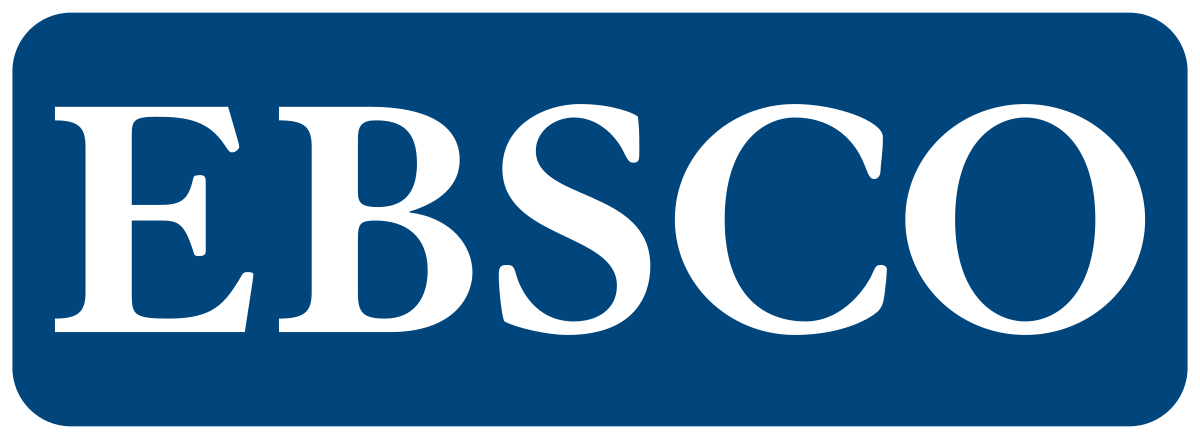Development of TOGA Edu-Tourism with Augmented Reality Technology
DOI:
https://doi.org/10.23960/jtepl.v14i4.1268-1281 Abstract View: 186
Abstract View: 186
Abstract
The development of Edu-tourism based on family medicinal plants (TOGA) in Tirta Jaya Village, supported by Augmented Reality (AR) technology, can enhance education, environmental conservation, and local economic opportunities. This Edu-tourism initiative offers an innovative and sustainable tourism model that positively impacts the tourism sector and the economy. This study aims to explore and analyze the potential for developing TOGA-based Edu-tourism with AR technology support as an innovative educational tourism model, providing benefits to the community and the environment, while adding value to sustainable local products. This study employs a qualitative descriptive approach with three main stages: a literature review and field data collection to analyze the potential of TOGA and AR technology; an evaluation of TOGA potential based on tourism attraction feasibility, flagship product prioritization, and value-added analysis using the Hayami method; and the development of AR components for interactive education. The results indicate that the combination of TOGA and AR technology can increase public awareness of health, medicinal plant conservation, and local economic empowerment through interactive educational tourism. The educational tourism attraction TOGA Tirta Jaya Village has a high feasibility index, with an average score above 79%, making it worthy of development.
Keywords: Added value; Augmented reality; Edu-tourism; Family medicinal plants (TOGA); TOGA products.
Downloads
References
Agustina, T., & Saefudin, A. (2017). Integrasi Augmented Reality dalam Pengembangan Edukasi Tanaman Obat Keluarga di Sekolah Menengah. Jurnal Ilmu Komputer dan Teknologi, 13(4), pp. 233-241.
Alif, T., Wahidah, F. F., Aisyah, M. D. N., & Resmi, F. (2024). Pemberdayaan Masyarakat Melalui Budidaya Tanaman Obat Lokal di Gerai Toga Desa Dadapan. TAAWUN, 4(01), 78-84.
Andriana, A., Setiawan, H. & Pratama, D. (2022). Penggunaan Audio dalam Aplikasi Augmented Reality untuk Edukasi Tanaman Obat. Jurnal Teknologi Informasi, 15(2), pp. 120-130.
Hazin, M., Setiawan, A. C., & Rahmawati, N. W. D. (2023). Pemberdayaan Masyarakat dalam Mengembangkan Sentra Tanaman Obat Keluarga (TOGA) dengan Model ABCD di Desa Jemundo. Jurnal Trimas, 2(2), pp. 27-35.
Insan, H. N., Nst, N., & Harahap, F.. (2022). Penanaman Dan Pemanfaatan Tanaman Toga Pada Masyarakat Di Desa Parsalakan: Penanaman Dan Pemanfaatan Tanaman Toga Pada Masyarakat Di Desa Parsalakan. Jurnal Pengabdian Masyarakat Aufa (JPMA), 4(3), pp. 142–147.
Kardiansyah, A., Prasetyo, D., & Arifin, M. (2022). Pemanfaatan Tanaman Obat Keluarga (TOGA) dalam Pengembangan Eduwisata: Studi Kasus di Desa X. Jurnal Edukasi dan Teknologi, 15(2), pp. 45-52.
Kusumawati, L. (2020). Indeks Kelayakan Pengembangan Produk Lokal Berbasis Tanaman Obat Keluarga (TOGA). Jurnal Pemberdayaan Masyarakat, 13(1), pp. 34-41.
Lestari, A. (2019). Pengembangan Model 3D Tanaman Herbal menggunakan Blender dalam Aplikasi AR. Jurnal Teknologi Kreatif, 7(1), pp. 45-55.
Nugroho, D., Kusumawati, A. & Wahyudi, T. (2022). Desain Antarmuka Pengguna dengan Figma untuk Aplikasi AR di Sektor Wisata Edukasi. Jurnal Desain Grafis, 11(3), pp. 99-110.
Permana, R. & Ardiansyah, F. (2020). User Interface pada Aplikasi Augmented Reality untuk Wisata Edukasi Berbasis Tumbuhan Herbal. Jurnal Teknologi Visual, 5(2), pp. 70-78.
Permatasari, P., & Hardy, F. R. (2019). Pemberdayaan Ibu Rumah Tangga Di Kelurahan Cinere Dalam Penanaman Dan Pemanfaatan Tanaman Obat Keluarga (Toga). Jurnal Bakti Masyarakat Indonesia, 2(1), pp. 129-134.
Rahayu, S. & Wijaya, B. (2023). Penerapan Marker pada Aplikasi Augmented Reality untuk Tanaman Obat. Jurnal Sistem Informasi, 12(1), pp. 140-150.
Riani, A. & Sugiarto, M. (2019). Pengembangan Produk TOGA untuk Meningkatkan Ekonomi Masyarakat Desa. Jurnal Agribisnis dan Agroindustri, 11(4), pp. 33-40.
Saputro, A. & Santosa, B. (2020). Implementasi Vuforia SDK untuk Pengembangan Aplikasi Augmented Reality Edukasi Tanaman Obat. Jurnal Informatika, 18(4), pp. 345-355.
Sari, D., Setiawan, D., & Kurniawan, A. (2021). Pengembangan Eduwisata Berbasis Tanaman Obat Keluarga (TOGA) sebagai Alternatif Pariwisata Berkelanjutan. Jurnal Ilmu Pariwisata, 17(1), pp. 65-74.
Suryadi, I. & Akbar, R. (2022). Pengembangan Peta Interaktif Berbasis AR untuk Wisata Edukasi di Desa Tirta Jaya. Jurnal Sistem Informasi Geografi, 10(1), pp. 65-78.
Suryani, D., Purnomo, H., & Santosa, B. (2021). Augmented Reality dalam Pengembangan Eduwisata Berbasis TOGA: Meningkatkan Interaktivitas Pengunjung. Jurnal Teknologi dan Inovasi Pendidikan, 19(3), pp. 23-29.
Yuliana, Y., Wijayanti, L., & Nurfadila, M. (2020). Peluang Pengembangan Produk Berbasis Tanaman Obat Keluarga di Pasar Lokal. Jurnal Ekonomi dan Bisnis, 8(2), pp. 112-118.
Yuliani, L., Pratami, M. & Handayani, R. (2021). Visualisasi 3D Tanaman Obat dengan Augmented Reality untuk Pendidikan Kesehatan. Jurnal Pendidikan Teknologi Informasi, 6(3), pp. 205-215.
Yusman, Y. (2021). Penggunaan Teknologi Augmented Reality untuk Pembelajaran Tanaman Obat Keluarga (TOGA) di Indonesia. Jurnal Teknologi Pendidikan, 35(2), pp. 45-56.
Downloads
Published
How to Cite
Issue
Section
License
Copyright (c) 2025 Meldayanoor Meldayanoor, Veri Julianto, Miuhammad Indra Darmawan, Jupri Mustofa, Firda Adelia

This work is licensed under a Creative Commons Attribution-ShareAlike 4.0 International License.
Authors who publish with this journal agree to the following terms:
Authors retain copyright and grant the journal right of first publication with the work simultaneously licensed under a Creative Commons Attribution-ShareAlike 4.0 International Lice that allows others to share the work with an acknowledgement of the work's authorship and initial publication in this journal.
Authors are able to enter into separate, additional contractual arrangements for the non-exclusive distribution of the journal's published version of the work (e.g., post it to an institutional repository or publish it in a book), with an acknowledgement of its initial publication in this journal.
Authors are permitted and encouraged to post their work online (e.g., in institutional repositories or on their website) prior to and during the submission process, as it can lead to productive exchanges, as well as earlier and greater citation of published work (See The Effect of Open Access).
Jurnal Teknik Pertanian Lampung

JTEPL is licensed under a Creative Commons Attribution-ShareAlike 4.0 International License.













